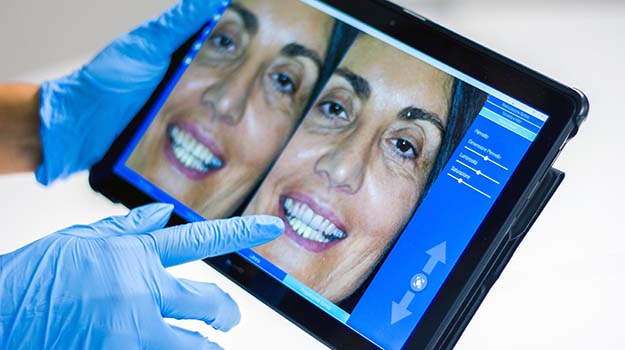What Causes Shifting Teeth?
18 Sept 2022 admin
When teeth are properly aligned, they can create more than just a beautiful smile; well-positioned teeth are essential for oral health and help ensure your mouth can function properly. Any signs of tooth movement are a potential cause for concern, and it's always best to come and see us as soon as possible. We can check your oral health and identify why your teeth have begun to move before creating a custom treatment plan to help stabilise and straighten them.
What Happens When Teeth Shift Position?
When teeth are out of place, it can affect your bite, so it is trickier to chew food properly. It can significantly affect oral health because misaligned teeth are harder to keep clean. It can also affect your jaw joints, called temporomandibular joints, causing temporomandibular joint disorder or TMJ. TMJ can be painful, causing your jaw joints to become inflamed, and the pain can even spread to your neck and shoulders or may cause chronic headaches.
Read on to discover why teeth can shift position.
Ageing
Teeth can shift position as a natural part of ageing, especially as the ligaments and bone surrounding your teeth can change and become weaker, causing teeth to loosen. Some people have an orthodontic relapse after wearing braces during childhood. As they age, teeth can try to shift back to their original places, especially if retainers aren't used correctly.
One option for straightening teeth is to use Invisalign, an adult-oriented braces system that can help realign crooked teeth creating a healthy, attractive smile.
Teeth Grinding and Clenching
Bruxism or teeth grinding and clenching places teeth under substantial pressure, wearing them down and causing them to become chipped and cracked and eventually loosening teeth. In the worst case, teeth can even fall out, causing an unbalanced bite.
If you have noticed you wake up with a sore, aching jaw or that your teeth have started to look worn and chipped, we can assess your dental health and, if necessary, provide a custom-made night guard. The device fits over your teeth, preventing you from clenching and grinding, protecting your teeth.
Tooth Loss
Your teeth are designed to work together, so even losing a single tooth can increase your risk of dental problems. The remaining teeth will start to shift towards the empty space, affecting your bite and the stability of these teeth, and tooth loss can cause your jawbone to start deteriorating.
When you lose even a single tooth, we will want to discuss ways to replace it. One option is to use the latest dental implants that help protect your jawbone and help prevent unwanted tooth movements.
Gum Disease
Gum disease is a bacterial infection that is entirely preventable but which, without treatment, can cause tooth loss. It destroys the structures around your teeth so they loosen and can fall out.
Ensuring you visit us regularly for checkups and cleanings and maintain a good oral care routine at home will prevent this common disease.
